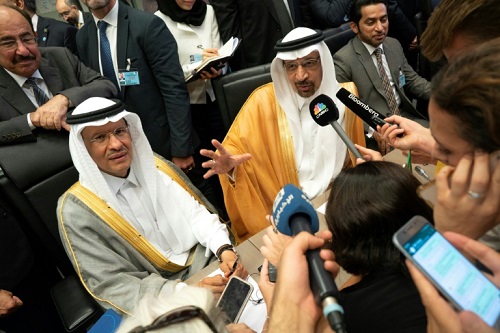Most major stock markets in the Gulf rose in early trade on Wednesday, tracking Asian shares and oil prices higher, while the Saudi index bucked the trend to trade lower.
Crude prices – a key catalyst for the Gulf’s financial markets – posted gains of more than 1% in Asian trade on falling U.S. crude inventories and a lower greenback. However, concerns that OPEC+ will leave output unchanged at its upcoming meeting and weak China data limited gains.
OPEC+ is likely to keep oil output policy unchanged at a meeting on Sunday, five OPEC+ sources said, although two sources said an additional production cut was also likely to be considered, to support prices.
The Qatari index (.QSI) added 0.2%, on track to extend gains from the previous session when it snapped three sessions of losses, led by a 1.2% rise in Qatar Islamic Bank (QISB.QA).
Germany is set to receive new flows of Qatari liquefied natural gas (LNG) from 2026 after QatarEnergy and ConocoPhillips (COP.N) on Tuesday signed two sales and purchase agreements for its export, covering at least 15 years.
QatarEnergy and German utility firms have been thrashing out long-term LNG deals for much of this year as Berlin looks for alternatives to Russia, which is Germany’s biggest gas supplier.
In Abu Dhabi, the index (.FTFADGI) gained 0.3%, with the country’s biggest lender First Abu Dhabi Bank (FAB.AD) rising 1.4%.
The board of Abu Dhabi National Oil Company endorsed plans on Monday to bring forward the company’s five-million-barrels-per-day oil production capacity expansion to 2027 from a previous target of 2030, to meet rising global energy demand.
Dubai’s main share index (.DFMGI) climbed 0.3%, helped by a 1.9% gain in top lender Emirates NBD (ENBD.DU).
Saudi Arabia’s benchmark index (.TASI), however, dropped 0.6%, hit by a 3.3% fall in Riyad Bank and a 0.9% decrease in Al Rajhi Bank (1120.SE).



